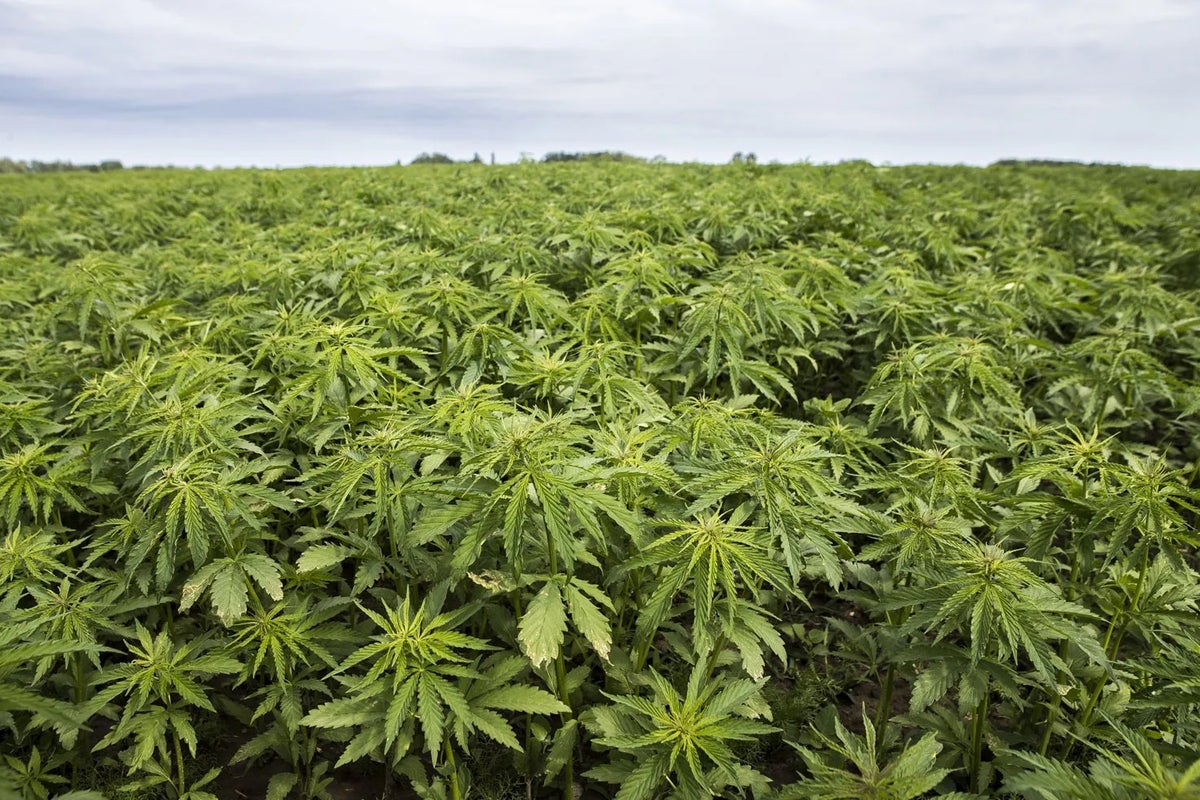A team of scientists from Hudson Carbon, a research center in upstate New York that studies carbon storage, say cannabis could be the missing player in humanity’s fight against climate change. How? Hemp absorbs carbon dioxide from the atmosphere more than twice as effectively as trees.
Although the U.S. only accounts for about five percent of the global population, it is responsible for 28 percent of the world’s carbon emissions, so it behooves us to take notice.
“Roughly speaking, if [the US] did 50 million acres of hemp, we would be sequestering a couple hundred million tons of carbon per year on that acreage,” said Ben Dobson, founder and president of Hudson Carbon.
Dobson is considered a pioneer in the carbon farming space. His farm in New York’s Hudson Valley is a soil laboratory where researchers found that, while trees can capture about six tons of CO2 per year, hemp can suck up to 16 tons. CO2 also becomes permanently encased within hemp fibers, which can be used as raw material to manufacture a wide variety of products, ranging from textiles and construction to car parts to medicine.
Considering cotton alone, which represents 43% of all fibers used for clothing and textiles worldwide, hemp can provide enormous benefits in view of the vast difference in the water needed to grow hemp vs. cotton.
Hemp, or industrial hemp, is a subspecies of the cannabis plant but lacks most of marijuana’s psychoactive compound tetrahydrocannabinol (THC).
Fastest-Growing Plant On Earth
Another benefit of hemp includes the fact that it is one of the fastest-growing plants in the world, reaching four meters in height in only 100 days.
Besides purifying the air of greenhouse gases, cannabis plants can also absorb carcinogenic heavy metals such as mercury, lead or cadmium from soils – elements which, although suitable for crops used for food, are highly dangerous for people who consume these plants.
And Hemp Is Destined To Be Wildly Profitable
Industrial sales are expected to triple in the next 7 years, rising from $4.71 billion in 2019 to $15.26 billion in 2027.
The work Dobson is doing now could lead to farmers getting paid for their practices and ability to sequester carbon.
Farmers, after all, are collectively responsible for 60% of the Earth’s surface and how it’s treated, according to Dobson.
“We’re really managing and stewarding over half the Earth’s surface,” he said. “We need to regenerate this Earth surface into a healthy ecosystem in order to assure a future for our children and mitigate the worst effects of climate change.”
One wonders…what are we waiting for?
Image and article originally from www.benzinga.com. Read the original article here.

